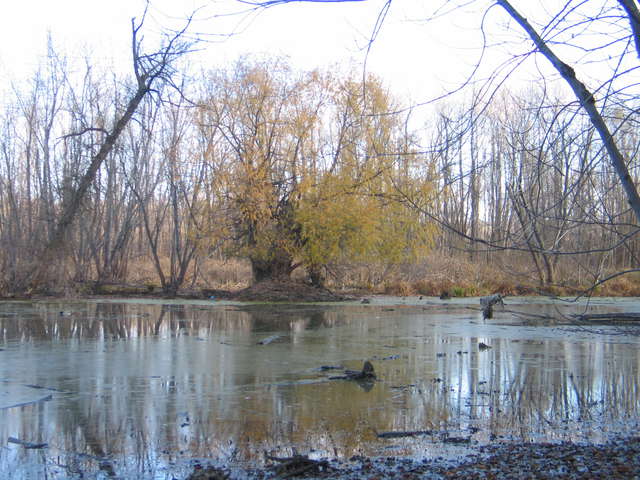November: The Changling

After overseeing bedtime for the wetland, Old Willow prepares for sleep herself.
The stage is set. Most of the leaves have been jettisoned, herbaceous plants are in full senescence, and animals that prefer to evade winter's cold are in torpor, have migrated or have died with the evolutionary peace of mind that offspring will carry on with the return of spring.
The next step in the process, as a diminishing amount of heat is available to keep atoms agitated, can be observed as thin layers of ice cover small ponds. First observed in the morning and then later and later in the day until ice becomes a permanent state of being, at least until the spring sun excites atoms back into motion once again with its growing warmth.
It is all in response to the changing state of water. When H2O changes from a liquid to a solid, it drastically changes the landscape, figuratively and literally. Lakes, or at least their upper zones become rock hard. This happens because ice formation in living cells destroys them, killing the organism that the cell helped to build, and moisture deposition accumulates on the surface of the ground, unable to infiltrate.
Everything changes. Life has become harder and yet given this planet's peculiar habit of wobbling through space, life has learned to cling to the idea that this too will pass. This November, that particular mantra, this too will pass is especially apropos.